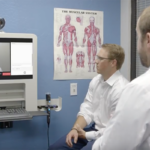
Present and Future of Digital Privacy in Legal Journalism
Concerns about Digital Privacy
The digital era has revolutionized many industries including journalism. As the world moves towards digitization, privacy concerns become more salient. Our online legal journal might collect and process personal data, such as unique identifiers or standard information from your devices, for personalized advertising and content, audience research, and service advancement. However, safeguarding your privacy remains one of our foremost concerns.
The provision of geolocation data and device identification might require your explicit consent. Remember, you retain the right to object to some processing of personal data even if it doesn’t necessarily require your approval. You should feel comfortable with our and our partners’ processing of your data, and we encourage you to engage with our privacy settings to update your preferences.
How to Manage your Digital Privacy?
You can modify your preferences or retract your approval at any time by returning to our site and pressing the Privacy button located at the bottom of the page. It is important to understand that your preferences are website specific, meaning they apply only to our online legal journal and won’t affect your interactions on other platforms.
You should stay vigilant about the fact that our site might employ Google services and might collect and store data including but not limited to your visit or usage behavior. It is within your power to grant or decline consent for Google and its third-party tags to handle your data for specific purposes.
Understanding Legal Issues in the Digital Age: From Veteran Benefits to Cybersecurity
Telehealth for Veterans and Digital Access
A particular area where digitalization has made a significant impact is the health care for veterans. A recent proposal by the Department of Veterans Affairs is indicative of this trend. The department is proposing to waive copayment requirements for telehealth visits for veterans, a significant move forward in increasing access to healthcare for our veterans, particularly those residing in medically underserved and rural areas.
Digital Infrastructure for Telehealth
Technology infrastructure is crucial for the success of telehealth implementation. As part of the plan, the VA intends to establish an ‘Accessing Telehealth through Local Area Stations (ATLAS)’ program. The program is geared towards funding telehealth access points and improving infrastructure for remote consultations. It marks a significant step forward to ensure veterans can conveniently access their VA healthcare.
Federal Employee Rights and Benefits
Another dimension we often cover is the array of rights and benefits for federal employees. These range from their retirement plans, pay structures, health insurance, and other benefits such as annual leave and hazardous work pay. Moreover, with veterans’ preference in federal jobs, understanding these benefits becomes even more crucial.
Tackling Digital Security: Federal and Military Perspectives
As we embrace digital transformation, questions surrounding digital security become more pertinent. The issue of cybersecurity in the federal and military sectors is increasingly gaining attention. Issues related to security clearances and what their loss implies form a significant part of this dialogue.
Protecting Your Digital Rights and Privacy: Our Contribution
Our aim as a legal journal in the digital age is to provide you with accurate and relevant information, all while protecting your digital rights and privacy. We hope to keep fostering a sense of trust and security among our readership and continue equipping you with the knowledge and tools you need to navigate the legal aspects of the rapidly evolving digital sphere.
Originally Post From https://www.fedweek.com/armed-forces-news/dod-proposes-to-wave-telehealth-copays-expand-access-to-rural-vets/
Read more about this topic at
Privacy By Design: Integrating Privacy Into Product …
Principles for Digital Development: Address Privacy and …
